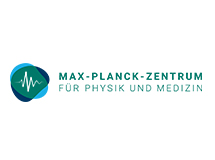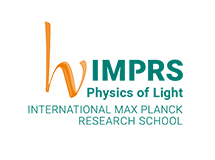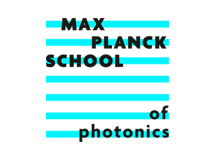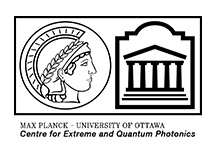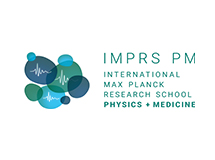Research and Science Under the Dome of Light - The Max Planck Institute for the Science of Light Opens its Doors for the Long Night of Science
The Long Night of Sciences is the largest science festival in the metropolitan region of Erlangen-Nuremberg and the largest of its kind in Germany. The Max Planck Institute for the Science of Light (MPL) invites all science enthusiasts on October 21st from 6 p.m. to illuminate all big and small questions related to the topic of light.
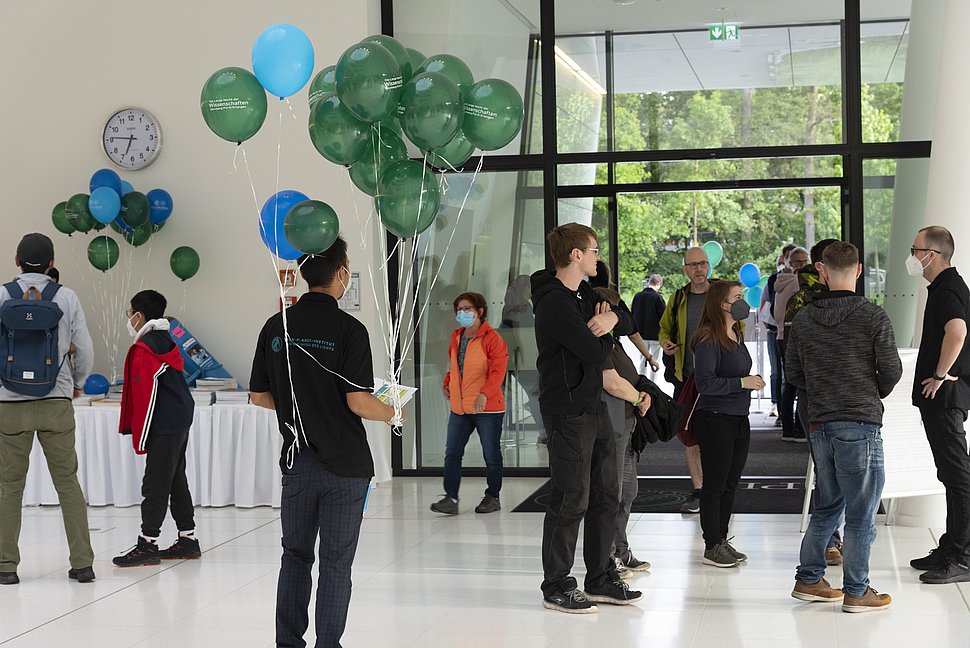
Visitors can expect an exciting and diverse program on this night, catering to everyone, from students to families and those just starting their scientific careers. The physics of light surrounds us at all times and everywhere. Under the dome of light at the Max Planck Institute for the Science of Light (MPL), we bring it closer to our visitors with lectures, lab tours, and interactive activities. We offer the opportunity to learn how basic research is conducted and how new knowledge is generated. Our scientists are eager to answer all your questions about light, lasers, or optics.
High-profile lectures and insights into high-tech research labs
This year, MPL is presenting a top-notch series of lectures in which institute directors, research group leaders, and experienced scientists will vividly introduce complex research topics such as artificial intelligence and the collaborative basic research in physics and medicine to the visitors.
Our lecture series includes:
-
How to Sense Diseases in Blood - Just as you can distinguish good tomatoes from overripe ones by pressing them in the supermarket, you can also "feel" diseased cells. In his lecture, Director Jochen Guck will introduce the innovative methods his department has developed over the years to scan thousands of cells per second and demonstrate how this can improve the diagnosis of cancer and infections.
-
Artificial Intelligence and Physics - In recent years, artificial intelligence methods have rapidly evolved, thanks to advances in the applications of artificial neural networks. In this lecture, Director Florian Marquardt will explain how neural networks work, where they are successfully applied, and how we at MPL use neural networks to develop better quantum computers.
-
Mind over Mechanics: Mechanics in the Central Nervous System - Join our scientist Stephanie Möllmert on a journey into the world of neural tissue mechanics. Through impressive experiments, understandable examples, and fascinating microscopy images, we aim to involve you in current research.
-
Manufacturing Photonic Crystal Fibers - How is a glass fiber actually made? Photonic crystal fibers enable researchers to conduct special experiments. Michael Frosz leads the fiber manufacturing and provides insights into our high-tech manufacturing.
-
Hypersound and Light for Optical Processors and Quantum Technologies - During a thunderstorm, you experience it dramatically: light and sound propagate at very different speeds. Both waves - optical and acoustic - have very different natures. In this lecture, Research Group Leader Birgit Stiller gives insights into how hypersound waves can be used to process quantum information, build optical neural networks, and enable sensitive sensors.
A highlight of the evening is the guided tours of our state-of-the-art science laboratories. Here, scientists and technicians offer unique insights into their work. Visitors can witness the production of advanced photonic crystal fibers at MPL and see how new tools for science are created using glass melting and 3D printing. In various high-tech labs, you'll learn more about spinal cord regeneration in zebrafish, the deformability of blood cells and what we can infer about a person's medical condition from it, or new evolution-based therapies for cancer.
Focus on the New Max Planck Research Center
This year, there will be a special exhibition: The Max-Planck-Zentrum für Physik und Medizin (MPZPM) will be introduced in the foyer of MPL. The MPZPM is an interdisciplinary, joint research center of the Friedrich Alexander University Erlangen-Nuremberg (FAU), the University Hospital Erlangen (UKER), and MPL. Here, physicists, medical professionals, and biologists collaboratively conduct basic research. They deal with fundamental questions about the physical properties of cells and tissues to gain a completely new, deeper understanding of biological processes and their pathological changes. The ultimate goal is to translate this understanding into novel diagnostic and therapeutic approaches. During the Long Night, guests in our foyer have the chance to ask all their questions about the new center directly to the scientists.
You can read our complete program here: https://p2f.mpl.mpg.de/215189
All information about the program and tickets can be found at: https://nacht-der-wissenschaften.de
Contact
Edda Fischer
Head of Communication and Marketing
Phone: +49 (0)9131 7133 805
MPLpresse@mpl.mpg.de

